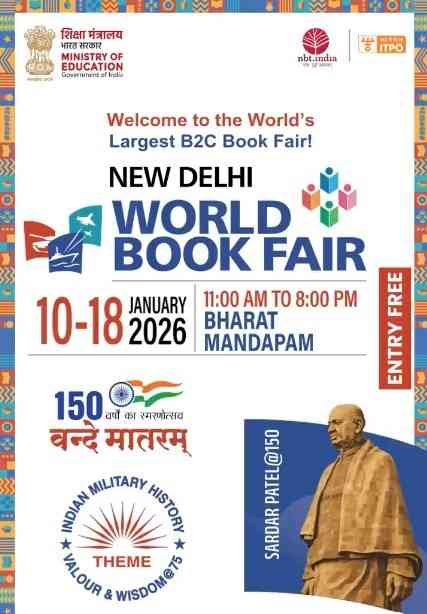Industry reactions on Union Budget (Part-8)

Suresh KV, President & Region Head, ZF India
“The 2023-2024 Union Budget is welcome and leads us towards a cleaner and more sustainable mobility solution for a greener and cleaner India. This budget highlights significant positive initiatives for the automobile industry through a slew of announcements supporting state government and municipalities in scrapping pollution-causing vehicles. The scheme makes way for faster electric vehicle adoption and helps transition to cleaner mobility in the long run. Along with that, the prioritization of green growth will aid all energy-generating sectors – wind, hydro and solar. The national green hydrogen mission, which was recently launched with an investment of Rs 19,700 crore will help the economy transition to low carbon intensity and reduce reliance on fossil fuel imports which would help guide the industry’s services toward smart logistics of the future. The increased outlay for infrastructure will also assist the transportation sector as a whole with a positive effect on logistics, light vehicles, industrial vehicles and commercial vehicles.
At ZF we welcome this forward-looking budget that focuses on digitalization, green growth strategy and cleaner mobility solutions for India’s inclusive development”.
Chiranjeet Rege, Chief Executive Officer, SILICA Institute
“The 2023 budget has continued this Government's push in Education. The total outlay for Education has increased to 1.12 lac crore. There is a clear digital push with the setting up of the National Digital Library for children. The implementation of the National Education Policy (NEP) 2020 has got an impetus with Teacher Training on innovative teaching techniques & pedagogy development through the District Institute of Education & Training (DIET). Skilling Indian youth to compete globally has been given importance. The budget proposes setting up 3 Centers of Excellence for Artificial Intelligence and 30 Skill India International Centers for training in Coding, AI, Robotics, 3D printing, Drones & Soft Skills. This budget has laid out the vision to make our children & youth more innovative, skilled and globally competitive.”
Shujaul Rehman CEO, Garware Technical Fibres Limited
"This year's budget announcements are significant in many ways especially in terms of changes in direct taxation. The Honourable Finance Minister has announced a sub scheme for the PM MATSYA SAMPADA YOJANA with additional incentives of ₹6,000 crore for fisheries and fisherman which is a welcome move. The exclusion of the textile sector from custom duty reduction should positively impact the domestic textiles sector. We also hope that some announcements made in this budget will encourage private sector companies to increase investments and also spend more on research & development."
Sanjay Goel, Chairman-IIA Punjab Chapter
“Fifty new airports and heliports to be made, hope Punjab may get one each.
Rs 10,000 crore for Urban infra fund every year will be very good for urban areas and can be increased.
Rs. 75,000 crore for 100 transport infra projects is a good step.
30 skill india international centres to be setup and hope Punjab may get one.
There is nothing concrete for Punjab or its smart cities.”
Gurmeet Singh Kular, President, FICO
“There is absolutely nothing for MSME sector in this budget, he further said that the government has extended the ECLGS scheme, but to pay a loan, taking another loan is not the solution. There is No Technology Upgradation Scheme, No Incentive, No New Scheme, and Nothing at all for MSME Sector. Totally Disappointing Budget for MSME Sector. We welcome the New Income Tax Regime, as it will benefit the masses. Further, he said we welcome the increase of import duty from 30% to 35% on complete bicycles, but the government should have increased the import duty on bicycle parts also, to give a boost to the local manufacturers.”
K. K. Seth, Chairman, FICO
“The Income Tax for Private Limited/ Public Limited companies is capped to a maximum of 25%, whereas The Partnership Firms, & Proprietorship firms are capped at 30%, which does not provide a level playing field to the Corporates and small industries. We are utterly disappointed that the Rationalization of Income Tax has not been done in this budget too.”
Manjinder Singh Sachdeva, Senior Vice President, FICO
“The Credit Link Capital Subsidy Scheme has not been reintroduced, let apart increasing its limit. The Credit Link Capital Subsidy Scheme should have been made permanent as it is the only scheme for the technological upgradation of the MSME industry.”
Rajeev Jain, General Secretary, FICO
“GST on Steel Raw Material has not been reduced to 12 % as the steel is being taxed at 18%, but the anomaly is that the finished products of the steel in Industry are being taxed at 12%, which is also resulting in GST refunds being stuck at the government's end. The GST on Steel should have been rationalized and reduced to 12 %.”
Harpal Singh Bhamber, Head, FICO Bicycle Division
“No Special Package for the Bicycle Industry has been introduced even though India is the 2nd Largest Bicycle manufacturer in the World, after China. The Bicycle Sector needs special attention from the government to flourish. So, that the Bicycle Industry can upgrade itself to compete with the world & to become India's largest manufacturer of Bicycles in the World.”
Rakesh Kaul, Executive Director and CEO, Clix Capital:
“It is a balanced budget and growth oriented. Given that NBFCs have been playing a pivotal role in providing easy access to credit for MSMEs, we expected to see some incentives being announced for the growth of NBFCs. It is good to see that the Government has rationalized taxation in the MSME sector and other initiatives that will play a decisive role in easing their burden.
We believe the following measures announced will catalyze the MSME ecosystem tremendously. For instance, micro-enterprises with a turnover of up to 2 crore and certain professionals with a turnover of up to 50 lakhs will get the benefit of presumptive taxation. The limits have been increased to 3 crores and 75 lakhs respectively to taxpayers whose cash receipts are not more than 5 percent. Further, to ensure that MSMEs receive payments on time, the Government has proposed to allow a deduction for expenditure incurred on payments made to them only once the payments are actually made. In addition, taking into account that MSMEs have faced many challenges during the pandemic, the refund of 95 percent to MSMEs is a welcome move. The DigiLocker app that had been created will now be made available to MSMEs, large businesses, and charitable trusts, where they will be able to store and share documents online in a secure manner with various authorities, regulators, banks, and other business entities. The Government has infused 9,000 crores in the corpus for this, enabling additional collateral-free guaranteed credit of ` 2 lakh crore. The Digilocker services will be a boost to fintech startups as well, as up till now, DPI only allows individuals to store and share their certificates, such as academic records, driving licenses, and PAN cards.
Further, the KYC process has also been simplified by taking a risk-based approach. A one-stop solution for updating identity will be established using Digilocker service and Aadhaar as foundational identity. The Permanent Account Number (PAN) will be used as a common identifier for all digital systems of government agencies.
In addition, as MSME skilling is an important aspect that needs to be addressed, the Government has announced a digital ecosystem for skilling. A unified Skill India Digital platform will be set up that will focus on demand-based formal skilling, linking with employers including MSMEs, and facilitating access to entrepreneurship schemes.”
Gaurav Jalan, Founder & CEO, mPokket:
“While we expected to see more announcements around the fintech sector, some of the welcome moves are the expansion of Digilocker services that will allow fintechs to store and share documents online in a secure manner with various authorities, regulators, banks, and other entities. The fintech sector has benefited much from prior Government initiatives, such as PM Jan Dhan Yojana, Indian Stack, and UPI.
We would also like to highlight certain measures announced in the Economic Survey 2023, such as the simplification of employee stock option (ESOP) taxes, capital gains tax regimes like those existing in Singapore, UAE, and the Netherlands, and capital flow procedures akin to the US and Singapore to accelerate reverse-flipping of startups back to India. This plays a major role in strengthening the domestic economy. Startups have always been one of our key engines for economic growth and it’s great to see that the number of recognized startups in the country has increased from 452 in 2016 to 84,012 in 2022. About 48 percent of our startups are from tier 2 & 3 cities and our country today is the third largest ecosystem for start-ups globally and ranks second in innovation quality among middle-income countries.
Entrepreneurship is truly vital for a country’s economic growth and towards this, the Government has extended the date of incorporation for income tax benefits to start-ups from 31.03.23 to 31.3.24. It has further proposed to provide the benefit of carrying forward of losses on change of shareholding of start-ups from seven years of incorporation to ten years. This is truly a welcome move.”
Badish Jindal, National President: AITF
“The Union Budget 2023-24 presented by Finance Minister Nirmala Sitharam is a directionless budget and once again the Finance Minister failed to present a growth oriented budget.
The focus of the budget is to please the masses with the increase in income Tax limit from 5 lakh to 7 lakh but this is not a major relief for public as its direct benefit to income tax assesses is merely 15000 a year.
If we deduct the funds allocated to Prime Minister Employment Guarantee Program and Guarantee Emergency Credit Line the total allocation to existing 7 crore MSME’s is merely 4478 crore rupees whereas the 14.5 crores farmers are given an allocation of 125035 crores. This discrimination with industries is unbearable and against the economic interests of the countey.
The government decreased allocation of many schemes such as:
Scheme for Fund for Regeneration of Traditional Industries from 334 crores to 280 crores,
Prime Minister Employment Generation Programme (PMEGP) and Other Credit Support Schemes 17600 crores to 17300 crores.
The fund allocation of PMEGP in 2021-22 was 2889 crores which reduced to 2700 crores in the current year.
Entrepreneurship and Skill Development Infrastructure Development Program fund reduced from 717 crores to 685 crores.
The fund allocation to the very important scheme of Credit Linked Capital Subsidy scheme is merely 1.06 crores.
The government claims to give the 2 lakh crores to MSME’s under GECL but bunks are charging very high rate of interest in such loans as compared to private bank loans.
So the government once again fully ignored the MSME sector of India and this may adversely affect the economic growth of the country.”


 City Air News
City Air News 









